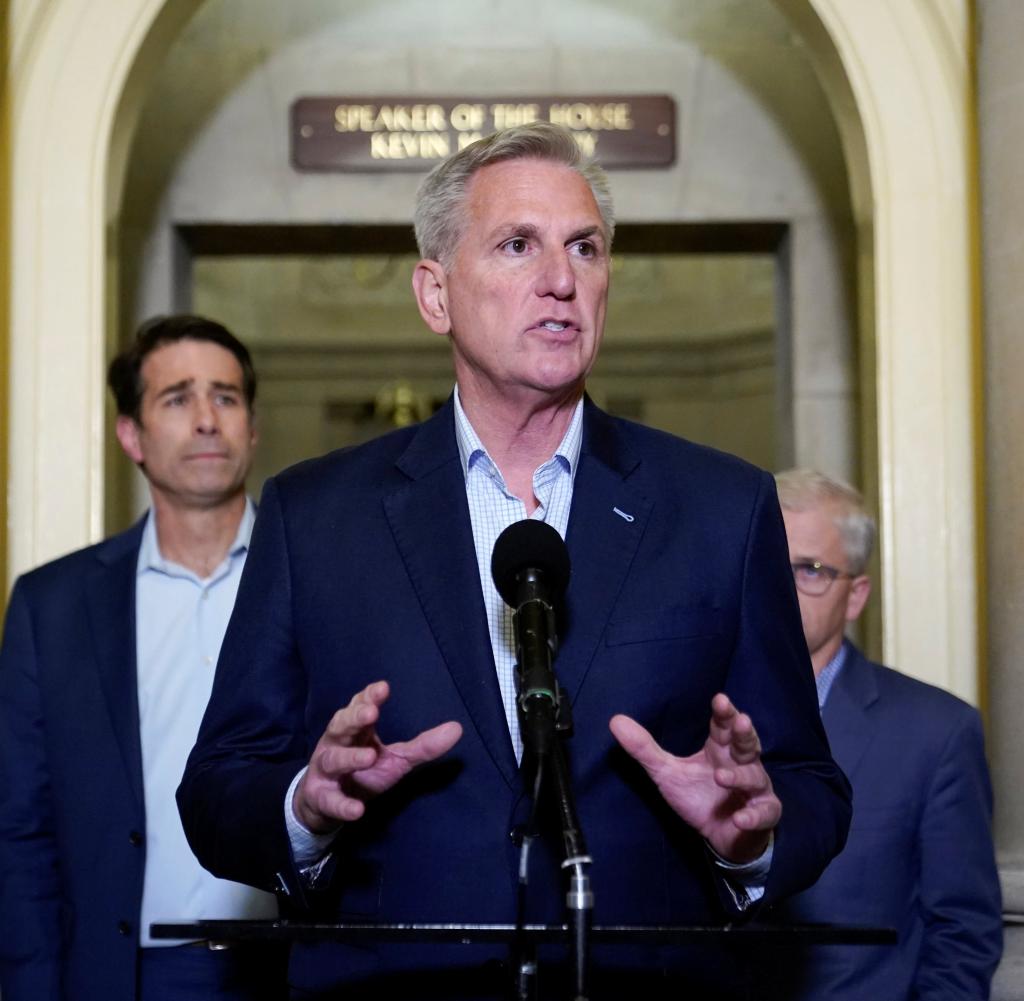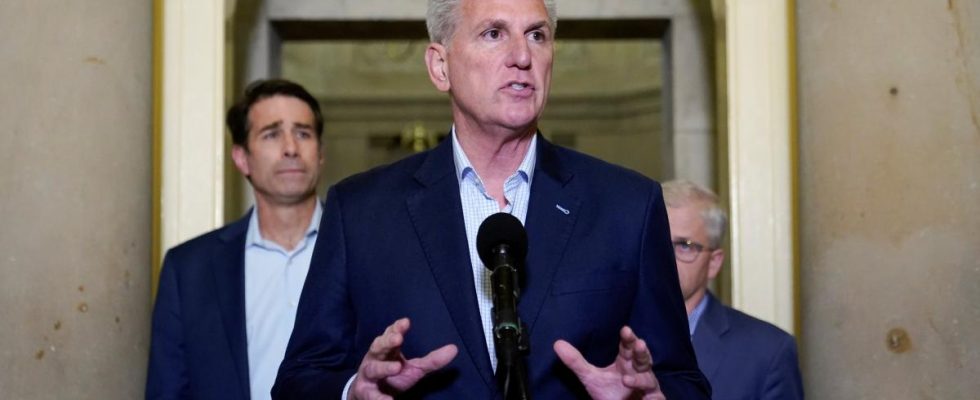US government and Republicans reach agreement in principle on debt dispute

Kevin McCarthy, Speaker of the US House of Representatives, speaks to members of the press in Washington
Source: dpa/Patrick Semansky
There has been a breakthrough in negotiations to raise the US debt ceiling. The US government and representatives from Congress reached a preliminary agreement. However, the Senate and House of Representatives still have to approve the deal.
Dhe White House and the Republican Party have reached an agreement in principle in the debt dispute. US President Joe Biden and opposition leader Kevin McCarthy agreed to raise the debt ceiling to avoid a US default, McCarthy confirmed in Washington on Saturday. The Biden-controlled Senate and Republican-controlled House of Representatives have yet to approve the deal. US media had previously reported on the agreement.
“After weeks of negotiations, we have reached an agreement in principle. We still have a lot of work ahead of us. But I believe this is fundamentally an agreement worthy of the American people,” McCarthy said after speaking to US President Joe Biden on the phone.
Biden welcomed the settlement Saturday night, saying it would prevent a “catastrophic default.” The US President spoke of a “compromise, which means that not everyone gets what they want”. However, the deal prevents “a potential catastrophic default” that would have “lead to an economic recession, destroyed pension funds and the loss of millions of jobs,” Biden added. The deal “reduces spending while protecting essential public programs.”
According to the broadcaster CNN, the negotiated text must now be checked and confirmed by the negotiators overnight. He expects to finalize the bill on Sunday, then talk to Biden and vote on the deal on Wednesday, McCarthy said. Although the final details of the deal remained unclear, McCarthy said the Democrats had agreed to “historic spending cuts” and that the text contained no new taxes or government programs.
The Republicans had wanted to urge Biden to cut back on social issues, for example, in exchange for an increase in the debt limit. McCarthy, for example, called for people who receive certain social benefits to have a job in return. Biden’s Democrats don’t want that. Instead, they wanted to close “tax loopholes” – specifically: tax the wealthy more heavily. Republicans are opposed to this.
Agreement must be passed in Congress
The compromise was reached after tough negotiations and a phone call between Biden and McCarthy. The negotiations took place under great time pressure. Without an agreement, the US would have faced default from June 5, with potentially devastating economic and financial consequences far beyond the country. The US would then no longer be able to pay most of its bills – millions of people could lose their jobs as a result. Treasury Secretary Janet Yellen warned on Friday, citing “the latest data”, that Parliament must raise the debt ceiling by June 5 in order for the government to meet its commitments.
The dispute had dragged on for months. Senior officials from Biden’s team continued negotiations during his trip to Japan for the G-7 summit. Biden had previously emphasized that he had managed to prevent a default 78 times in US history. However, both Republicans and Democrats would have to be prepared to cut corners.
But even with an agreement between the White House and McCarthy, the crisis is not over. The Senate, controlled by Biden’s Democrats, and the House of Representatives, controlled by the Republicans, have yet to approve the deal. There could be resistance in both parties to a compromise that has been found, which is why majorities in both chambers of Congress are by no means certain.
The United States had already reached the statutory debt limit of just under $31.4 trillion (around €29 trillion) in January. Since then, the US government has been using so-called extraordinary measures to prevent insolvency, but the options for doing so are soon exhausted.
The US debt limit has been suspended or raised dozens of times by presidents of both parties over the past few decades – and with bipartisan majorities.
“Everything on shares” is the daily stock exchange shot from the WELT business editorial team. Every morning from 7 a.m. with the financial journalists from WELT. For stock market experts and beginners. Subscribe to the podcast at Spotify, Apple Podcasts, Amazon Music and deezer. Or directly by RSS feed.



